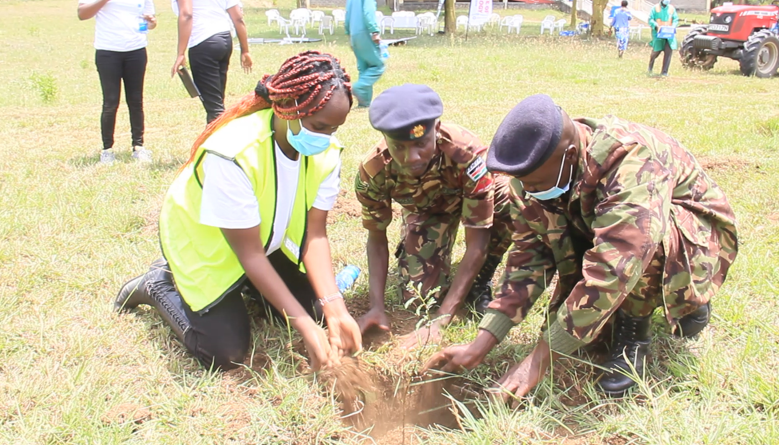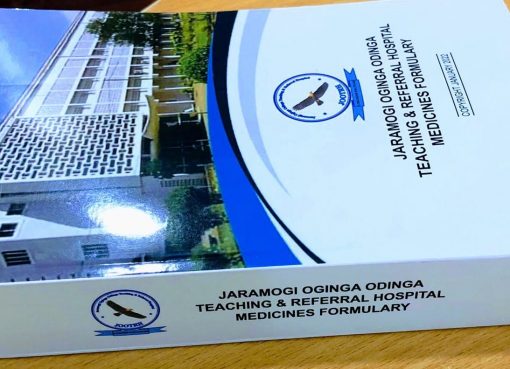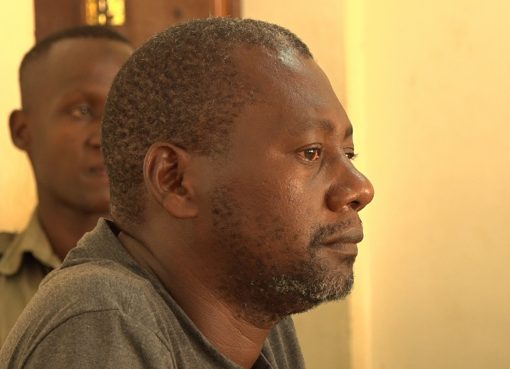For the past two years the Rift Valley Institute of Science and Technology (RVIST) has been running an ambitious program focusing on mitigating effects of climate change.
Teaching staff and students have been visiting the countryside of Nakuru, Baringo and Narok Counties and training farmers on sustained innovation in drought-resistant seed varieties, environment friendly practices and better post-harvest management to reduce losses.
The team has also been engaging the communities in activities such as tree planting, soil conservation, climate smart farming methods and clean-up of water bodies.
This noble cause has caught the attention of the Governing Council of sixth edition of the World Federation of Colleges and Polytechnics (WFCP) 2023 TVET Excellence for All Awards that has nominated RVIST for the award of Sustainable Development Goal- Championing mitigation on climate change.
According to the institution’s principal Dr Sammy Chemoiwo, climate change has become a threat to food security the world over. Its effects include unpredictable rains, leading to decreased yields and increased production costs.
Dr Chemoiwo, a career educationist in technical education, has also been nominated for the Leadership Award. Winners for the awards will be announced during the WFCP World Congress to be held in Montreal, Canada from April 25-27.
The congress, touted as the largest professional and technical education event in the world, will be attended by more than 700 delegates from 50 countries and six continents.
Researchers and students at RVIST are also exploring the use of technologies and innovations like solar irrigation, digital agriculture, climate-smart agriculture and climate-smart breeding, as ways to tackle the negative effects of climate change.
Other technologies the institute is rooting for include bio-fortification and use of climate-smart seed varieties.
“The climate is changing so fast that current technologies won’t be able to keep up. Innovators in climate smart technologies must up their game,” Dr Chemoiwo explains.
He insists that there is a need for concerted efforts among private and public industry stakeholders to give more attention to research.
In undertaking the climate change mitigation program RVIST has been collaborating with Climate Smart Agriculture Youth Network Global, the United Nations, Geothermal Development Company (GDC) and Kenya Electricity Generating Company (KenGen).
The institute has trained 30 students who are each allocated at least 30 smaller holder farmers who they encourage to grow the drought-resistant and highly-in-demand crop
“We want to empower farmers to make informed decisions such as planting at the right time and the right crop,” Dr Chemoiwo points out.
The Principal observes that the use of climate-smart agriculture innovations and technology is often limited to large scale farmers.
“Knowledge dissemination to small scale farmers is critical,” he adds.
The Principal says unless farmers embrace climate-smart agriculture, production will continue to dwindle, leading to decreased incomes, job losses and hunger.
Dr Chemoiwa indicates that there is a need to step up efforts to train farmers to embrace innovative practices.
“New pests and diseases have cropped up,” Dr Chemoiwo notes.
He further highlights the importance of ‘orphaned crops’ such as millet, sorghum, indigenous African vegetables, arrow roots, cassava, sweet potatoes and yams, in enhancing food and nutrition security, especially for the rural poor.
“With climate change, varieties will need to respond to hotter and drier conditions, but also more weather variability and extreme events, higher salinity with rising sea levels and more attacks from pests and diseases as higher temperatures increase incidence and severity,” explains Dr Chemoiwo.
He notes that apart from scaling up emerging technologies in agriculture, there is an urgent need to invest in policies and training.
“Transformation of food systems will require interventions beyond the disruptive technological innovations such as continued investments in low-tech interventions, creating new and bold policies, and influencing consumer behaviour,”
By Anne Mwale and Dennis Rasto





